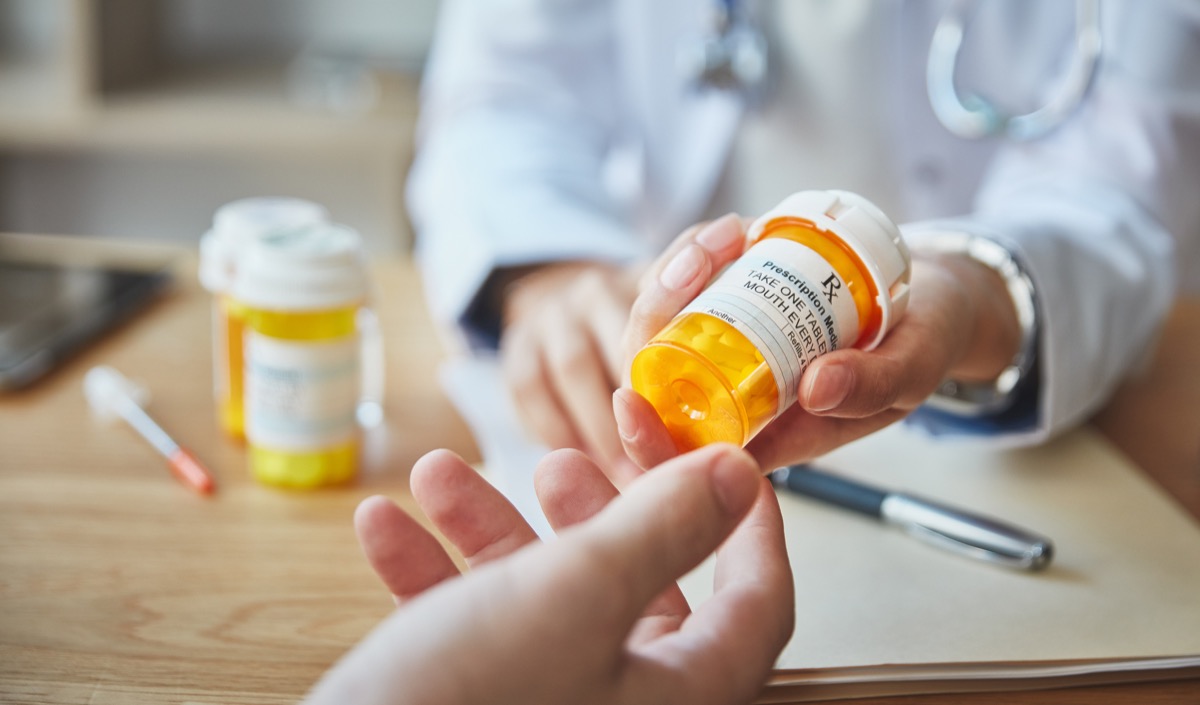5 Questions Your Pharmacist Wishes You’d Ask Before Taking Statins

If you’ve got high cholesterol or are at high risk for cardiovascular disease, your doctor may have brought up the possibility of taking statins. Also known as HMG-CoA reductase inhibitors, statins are among the most commonly prescribed medications, and may help to lower your cholesterol levels by 50 percent or more, according to the Cleveland Clinic.
“Statins get in the way when your liver is trying to make cholesterol,” their experts explain. “Like a good basketball player who doesn’t let an opponent get the ball, statins don’t let your liver have an enzyme it needs to create cholesterol. Your body makes 75 percent of your cholesterol, so helping it make less can make a big difference.”
However, as with all other medications, it’s important to weigh the risks and benefits of beginning statins with the help of your doctor, and to discuss any questions you may have with your pharmacist. Not sure where to begin? Read on for the top five questions your pharmacist wishes you’d ask before taking statins.
READ THIS NEXT: Drinking This Popular Beverage Can Slash Your Bad Cholesterol, Experts Say.
1
What are the potential side effects?

Before beginning statins, it’s important to understand their potential side effects. “With them being so widely prescribed and utilized, there is a lot of information (and sometimes misinformation) out there regarding the potential side effects of statins,” says Brian Staiger, PharmD, a clinical pharmacist with over 13 years of experience, and the owner and editor of HelloPharmacist.com. “Two of the most common side effects individuals are concerned about regarding statins are muscle pain and memory problems,” he tells Best Life.
By discussing the full range of possible side effects, you can make an informed decision about whether statins are right for you. It will also help you understand “exactly what to look out for, how to potentially mitigate risks, and how to manage these side effects should they occur,” says Staiger.
This will ultimately make you less likely to stop medications suddenly or prematurely, which could put you at risk of adverse effects.
READ THIS NEXT: Doing This When You Walk Slashes Your Risk of Heart Attack, Cancer, and Dementia, New Study Says.
2
Are there any possible interactions I should know about?

It’s also important to understand whether statins may interact with any other medications, supplements, or foods. “There are a number of different statin medications available, and they each have their own specific precautions,” says Staiger. “Several statins can interact with foods (like grapefruit juice and simvastatin), while others can interact with antacids,” he notes.
The pharmacist adds that statins commonly interact with certain herbal supplements, such as red yeast rice. “It is important to be aware of medications, both prescription and over-the-counter, which include herbal supplements, that may interact and put you at risk for side effects.”
3
What time of day should I take statins?

The type of statin you take may influence what time of day you take your medication. By asking your pharmacist what timing is best, you can establish a routine that both works for your schedule and optimizes the drug’s effects.
“Some statins can be taken anytime during the day, while others should be taken at night for best effects,” says Staiger. “This is all based on how our body metabolizes these drugs, which varies based on the specific statin in question,” explains Staiger.
4
Is this a low dose, medium dose, or high dose—and why was I prescribed this dosage?

Besides selecting a particular type of statin, your doctor will have also prescribed a low, medium, or high dose. Kim Russo, PharmD, BCPS, co-founder and SVP Pharmacy Services of Aspen RxHealth, says this is something you should discuss with your pharmacist before beginning your new regimen.
“It’s important for patients to be engaged in their health. By asking their doctor about dosing, patients can feel like part of their health care team and understand why the prescriber chose a certain dose,” she tells Best Life. She adds that this also helps the patient understand “what the next steps will be to assess if this dose is adequate, or if it should be adjusted in the coming weeks or months.”
5
Can we talk about my concerns?

Finally, Russo says it’s imperative to bring up any concerns you may have, taking a moment to explain what worries you about those aspects of taking the medication.
“This question helps the doctor or pharmacist meet the patient where they are,” she says. “Patients may have an exaggerated sense of concern about certain medications based on things they have heard from unreliable sources or anecdotes from friends or family members. Patients should have the information they need in order to feel as comfortable as possible,” Russo tells Best Life.